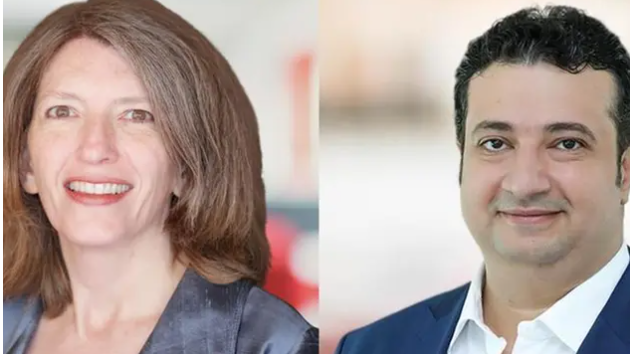
DUBAI: Following a dip in 2020, tourism globally is again on the rise and is expected to reach $17 trillion in size by 2027, compared to $11 trillion prior to Covid-19. Bain & Company’s new research study, Sustainable Tourism: An Untapped Opportunity for Green Growth, reveals that there is an increasing appetite for more sustainable tourism among leisure travelers across the globe, who will choose destinations and providers (airlines, hotels, restaurants, and tour companies) based on their sustainability records and are starting to pay a premium for it. On the other hand, research shows that some travelers feel that the travel and tourism sector is making little or no effort to be more sustainable, indicating that there is still much room for the sector to respond and make a difference.“The uptake in sustainable tourism is driven by an appetite to travel sustainably and make more responsible choices. Bain has developed a framework defining the components of a sustainable tourism experience around three pillars: environmental impact (e.g., eco-friendly transportation and accommodation options), social responsibility (e.g., DEI standards), and community engagement (e.g., contract with locals)” says Karim Henain, Partner at Bain & Company Middle East.There is a significant opportunity among the “sustainability enthusiasts” segment of travelers interested in visiting the MENA (Middle East and Northern Africa) region. The study’s aim is to better understand the behaviors and preferences of relevant travelers interested in MENA as a destination. The research covered consumers from six markets: Germany, Italy, France, the UK, Saudi Arabia, and China.Overall, more than two-thirds of consumers surveyed in the selected markets consider sustainability aspects to be important or extremely important when traveling for leisure, and 73% expect sustainability to become more important over the next five years. In addition, they state that sustainability considerations influence their choices (64%), are willing to pay extra for more sustainable offerings (66%) and would recommend a holiday destination based on sustainability considerations (57%). Among the respondents, Bain identified sustainability enthusiasts: those who consider sustainability “extremely important,” both in their daily life and when traveling for leisure (~30% of survey respondents).Sustainability enthusiasts were found in all markets, but demographics varied by country. For example, sustainability enthusiasts from China and Saudi Arabia were predominantly highly educated millennials, whereas their European counterparts were almost equally spread across age groups, income, and education levels.Importantly, compared with the rest of the survey respondents, sustainability enthusiasts were:4x more likely to consider sustainability aspects as “extremely important” when choosing a holiday destination7x more likely to recommend a holiday destination driven by sustainability considerations1.6x more willing to pay for more sustainable choices, at a premium of 15 to 20 percentage points compared to non-enthusiastsTo further analyze the potential that sustainable tourism has in Egypt, Bain & Company worked closely with the Ministry of Tourism and Antiquities to develop insights about the travel and tourism industry in the country. On that note, H.E Ghada Shalaby, Vice Minister for Tourism - Ministry of Tourism & Antiquities Arab Republic of Egypt said: Contributing to such valuable reports as this one provides priceless insights and recommendations that will guide our efforts to promote sustainable tourism in Egypt and create a more resilient and inclusive industry for the future. These insights should continue being a part of our decision-making processes as they will further refine the industry.Egypt has several assets to leverage, but still has some work to doEgypt has already launched several initiatives to improve the sustainability performanceof its travel and tourism sector. Examples include Mainstreaming Biodiversity in Egypt’s Tourism (MBDT), Green Star Hotel (GSH), as well as flagship initiatives promoting Egypt’s holiday destinations across sustainability pillars, such as the town of El Gouna, “the first place in Africa and the Arab region to receive the UN-sponsored Global Green Town award,” which recognizes cities that display “substantial efforts and progress towards environmental sustainability and a greener community.” El Gouna has a zero-waste system where more than 85% of all waste is reused and recycled.To evaluate how travelers perceive Egypt’s sustainability efforts, the survey respondents were asked to rank Egypt’s sustainability performance vs. the main competing destinations in MENA (Greece, Turkey, Tunisia, UAE, Morocco). Sustainability enthusiasts perceived Egypt’s sustainability performance more favorably compared to competing destinations as they ranked Egypt 2nd, however, overall survey respondents ranked Egypt 4th.Balancing the right mix of “bass notes” and “high notes” is important for Egypt’s sustainable tourism. While bass notes – broad important topics such as sustainability certificates and green infrastructure – are critical, customers tend to follow the high notes, which are topics that create differential competitive advantage. For Egypt, an example of high notes would be to enhance the preservation of its cultural and natural assets across key eco-tourism zones.The opportunity that sustainable tourism presents to Egypt’s tourism sector is sizable and requires a coordinated effort across the entire ecosystem in order to capitalize on this opportunity. The roadmap should include:Targeting the sustainability enthusiastsDialing up Egypt’s high notes by repackaging existing tourist offerings to highlight sustainability aspects, defining new sustainable offerings, and launching flagship initiatives to improve the perception of Egypt’s sustainability performanceAttending to bass notes, including pursuing certificates, enhancing infrastructure, and distributing benefits to local communitiesNurturing the tourism ecosystem by stimulating businesses and local communities to adopt sustainable practices while securing the necessary funding“It is important to go green in the tourism sector as it allows tourism growth, environmental conservation, and social well-being to be mutually reinforcing – green/sustainable tourism will eventually help create jobs, support the local economy, and reduce poverty,” said Jenny Davis-Peccoud, Global Head of Sustainability & Responsibility Practice at Bain & Company.



